CDC (Center for Disease Control and Prevention) has warned about rising RSV cases. Does it seem like pandemic or epidemic?
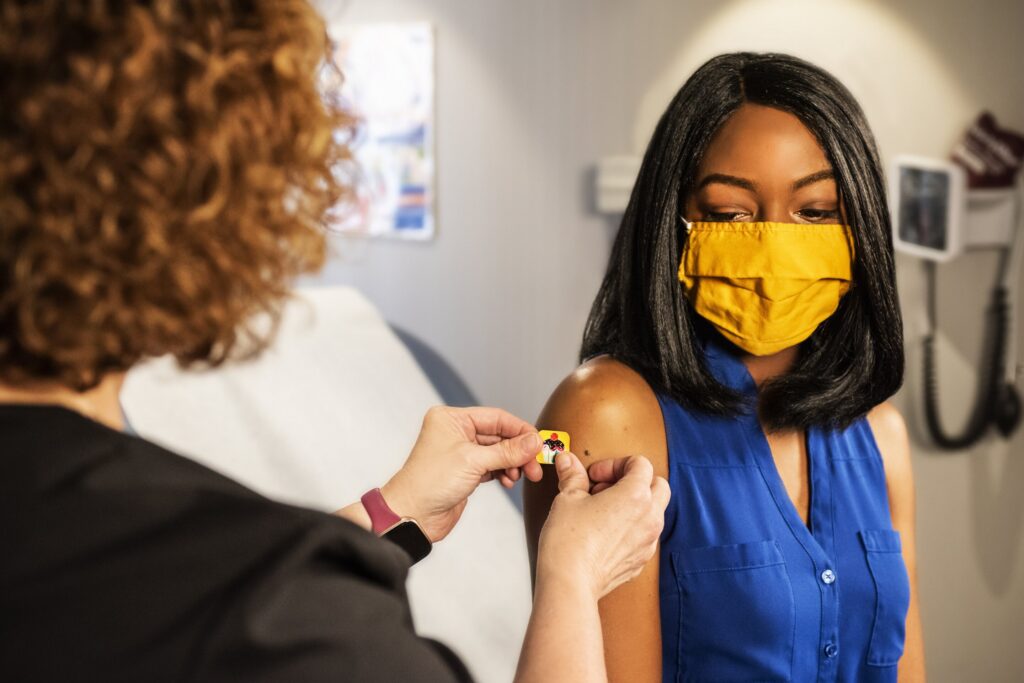
Like Covid and the flu, RSV is a highly infectious lung illness that peaks in the winter. However, RSV (respiratory syncytial virus) doesn’t currently qualify as a pandemic or an epidemic based on the commonly accepted definitions.
Without testing, it is very difficult for individuals to determine which respiratory virus they have because they occur at the same time of year and share certain symptoms.
Some RSV nuances to consider
Severity: Early onset and perhaps greater hospitalisation rates, especially among youngsters, were seen in recent RSV seasons, notably in 2021 and 2022. This might be because there was less exposure to the COVID-19 pandemic, which resulted in a lower level of general immunity.
Tripledemic concerns: A simultaneous “tripledemic” of RSV, influenza, and COVID-19 has affected several areas, placing a burden on medical resources. Even while none of the outbreaks alone would qualify as epidemics, their cumulative effect is cause for alarm.
P.S: Both RSV and the flu can range in severity from mild to severe. It is also possible to have flu and RSV at the same time.
The elderly and pregnant women are most at risk for severe influenza, whereas newborns and the elderly are most at risk for severe RSV illness.
RSV is spread from person to person by respiratory droplets, much like the flu and COVID-19. This is similar to an epidemic trend. However, it is more easily spread than the flu, even through contact with infected things like doorknobs.
Related Article: Medicare Does Not Cover RSV Vaccines For These Vulnerable Groups
According to bloomberg.com, health experts are alerting people about the illness since it is still spreading swiftly. At the end of December, 2023, the CDC (Center for Disease Control and Prevention) issued a health advisory.
RSV Regional Trends
Annual community epidemics of RSV infections usually happen in late autumn, early winter, or early spring in the United States. The timing of epidemics might differ across groups within a region and between areas.
Rising RSV region-wise data can be understand using this maps and pictures below issued by Center for Disease Control and Prevention – divided into 10 regions:


Boston HHS Region 1
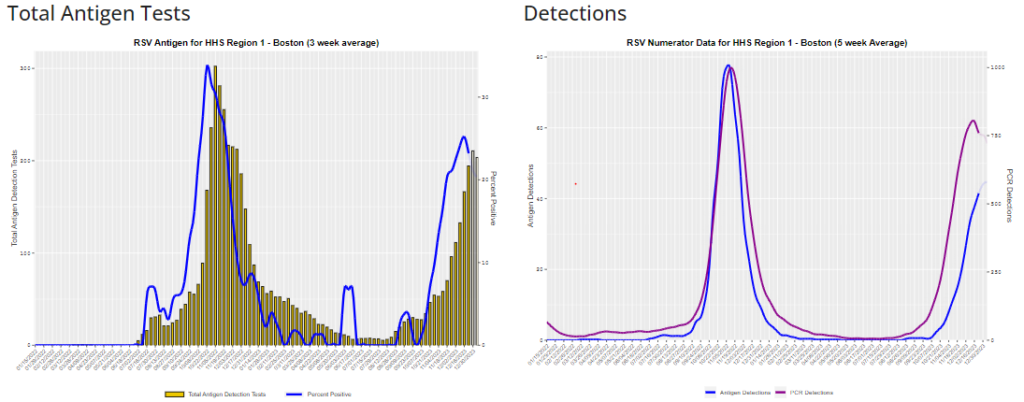

New York HHS Region 2
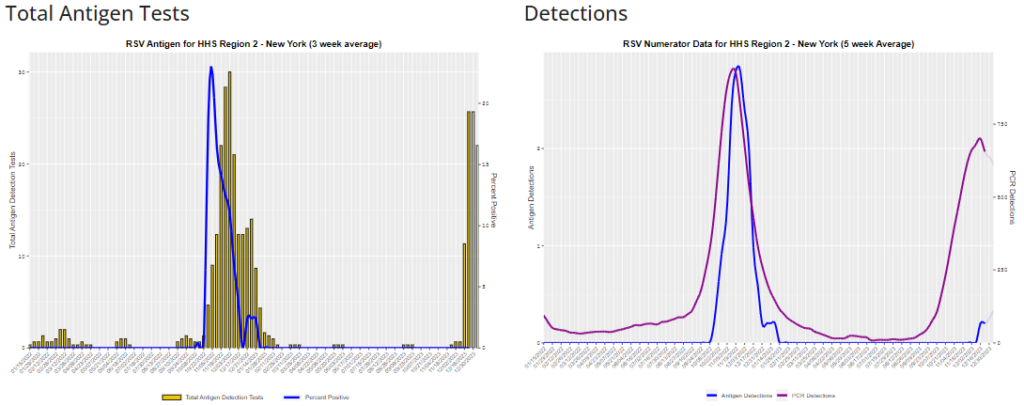

Philadelphia HHS Region 3
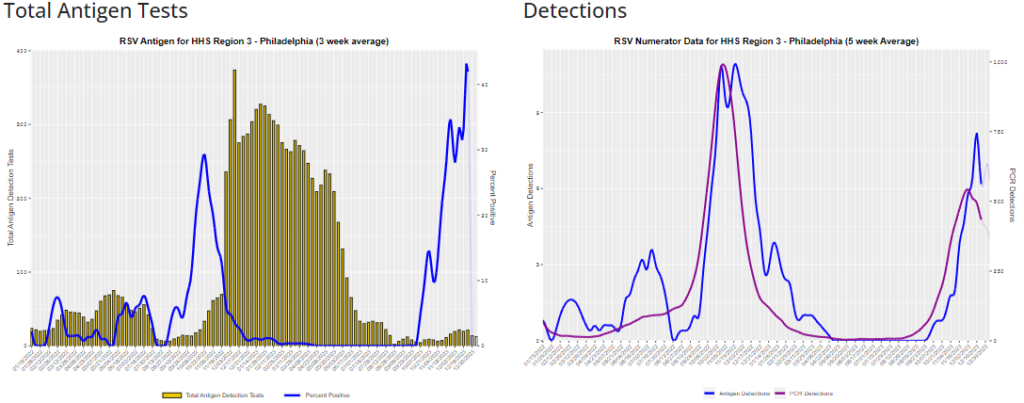

Atlanta HHS Region 4
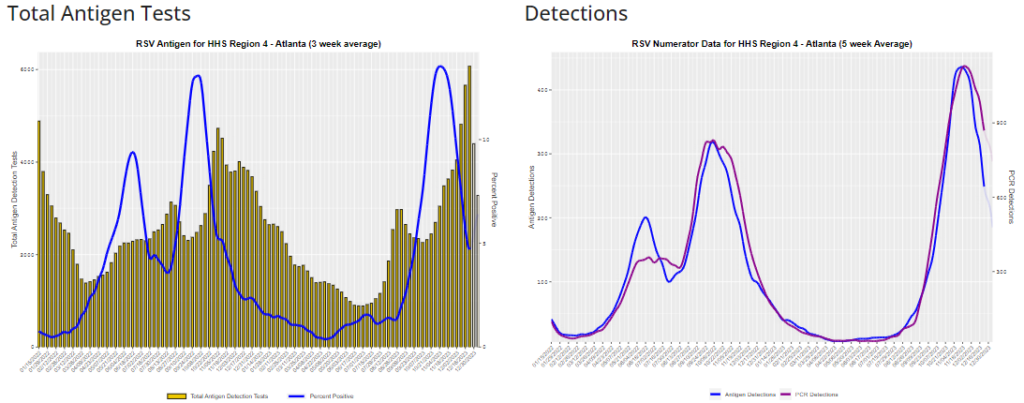

Chicago HHS Region 5
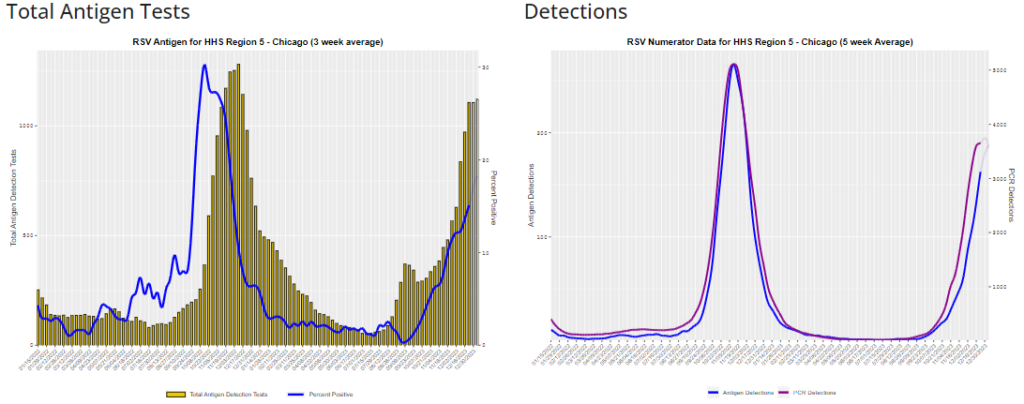

Dallas HHS Region 6
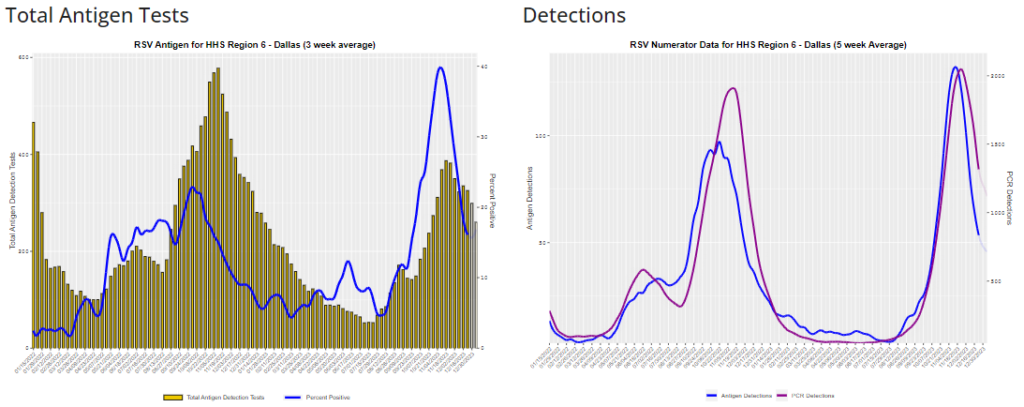

Kansas City HHS Region 7
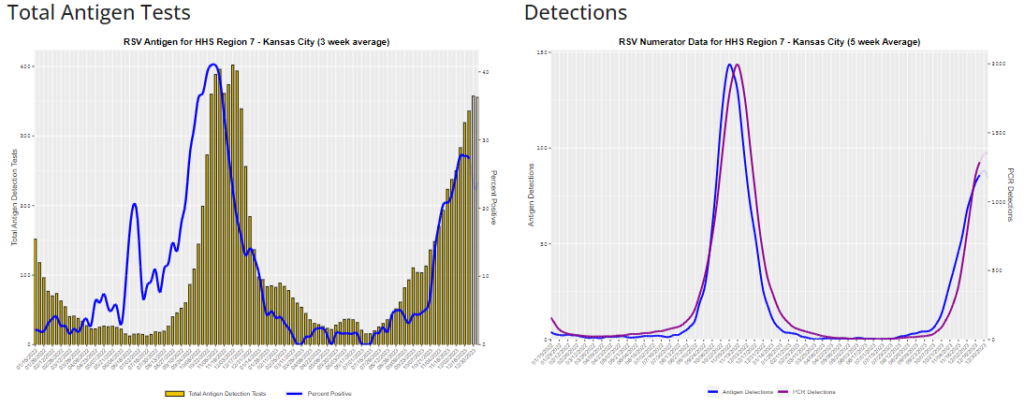

Denver HHS Region 8
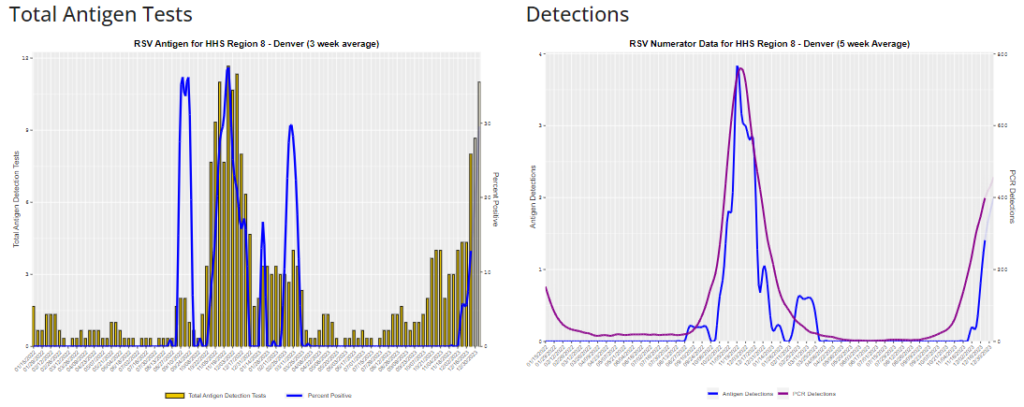

San Francisco HHS Region 9
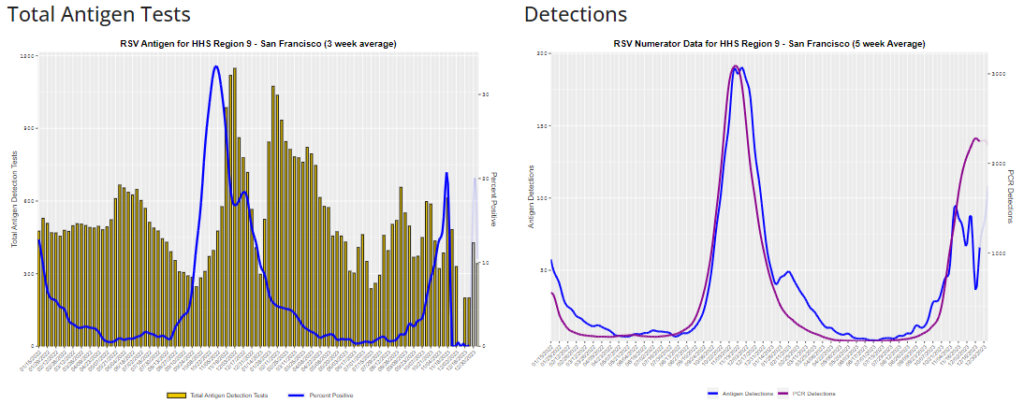

Seattle HHS Region 10
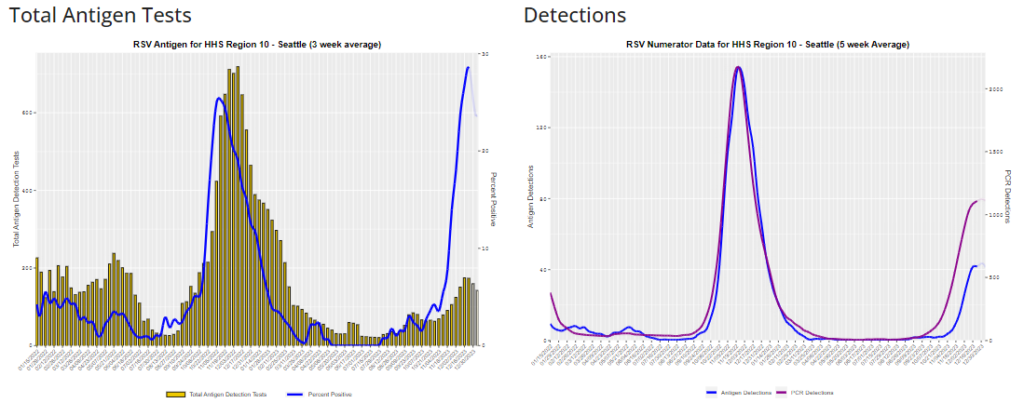

Vigilant than Before
According to University of Illinois Chicago epidemiologist Katrine Wallace, “vaccine uptake for this season is far below what is needed,” and hospitalisations and respiratory virus levels are rising.
It’s also critical to remember that, despite the high case counts, we’re most likely testing for RSV at higher rates than we were before to the pandemic. Wallace says the reason for this is that the COVID-19 experience made us more aware of respiratory virus identification.
Additionally, we now know a few effective coping mechanisms for viral propagation. These include covering your mouth when you cough or sneeze, staying at home while you’re unwell, and cleaning your hands. You should also stay away from crowded areas and poorly ventilated locations if you’re particularly worried about contracting or spreading the sickness.
Source:
https://www.cdc.gov/surveillance/nrevss/rsv/hhsregion.html
https://www.bloomberg.com/news/newsletters/2024-01-14/rsv-what-is-it-should-i-get-vaccinated-is-it-different-from-flu
